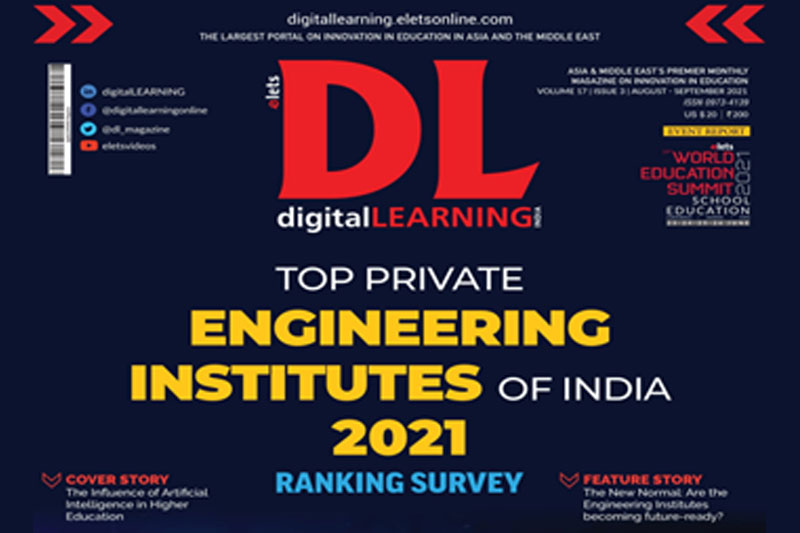Higher education in the engineering space needs to focus on industry-standard curriculums. Namrata Hazarika from the Elets News Network (ENN) writes on how engineering institutions are making students ready for the future job market.
The COVID 19 pandemic brought in a new set of challenges in front of the higher education system. Remaining resilient and focusing on mitigating the challenges has been the top priority for the education fraternity. The new normal scenario in the engineering sector is pushing educational institutions to revamp themselves and strive hard to build excellence in education, especially in the technical fields.
Current challenges in Engineering institutions
Dr. Reeba Korah, Professor & Dean, Alliance College of Engineering and Design, said, “Sailing through the pandemic for almost 18 months, some educational institutions such as Private Universities, Institutions of national reputation, and standalone institutions have strived hard to be digitally compatible with the situations that arose due to the new normal. However, many public universities with an enormous number of affiliated institutions are still struggling to cope with the situation. Digital connectivity is a significant challenge. Advances in technology are not equitable. Learners in rural and remote areas face connectivity problems. Many learners cannot afford the devices necessary for virtual learning.
The need to build digital connectivity is a significant challenge. For instance, the implementation of digital learning in higher education is picking up gradually. “Most of the tier-1 and quality focussed institutions moved to online platforms of their convenience to ensure adequate student engagement without affecting the pre-scheduled sessions”, Korah said.
Digital learning has created learning gaps in students. Hundreds of engineers who graduated are not able to find jobs as they don’t possess the required skills, which the industry needs now. The question is how can we prepare our graduating engineers for future jobs? Engineers lag in digital skills related t artificial intelligence, machine learning, data science and wireless technologies among others. In this context, Shekhar Sanyal, Country Head and Director of Institution of Engineering and Technologies among others. In this context, Shekhar Sanyal, Country Head and Director of Institution of Engineering and Technology (IET) India, said, “We are passing through a pandemic which has the market scenario. 2020 and 2021 were tough years, however, we anticipate a rebound in the economy and thereby jobs in the next two years. Job applicants need to understand that additional qualifications and broader understanding of the market and non-technical skills will play a major role in their ability to get a job.”
Most of the engineering institutes or colleges need to be equipped with modern facilities and invest in infrastructure development. There should be updated curriculums and course structures. Training the faculty is a must so that they can motivate students to build to build confidence and focus. Apart from IITs and NITs, most engineering institutions are providing average teachings. A competitive mindset should be developed among the engineers to be able to cope up with current industry requirements. Focussing on practical skills should be the priority of the engineering institutions rather than imparting fundamental theories to the students.
“The significant change we observe is the substantive requirement of new-age technical skills, coding skills, and soft skills irrespective of their core specializations.” Korah also added and said there is a need to focus on outcome-based education, which evaluates the skills acquired during the study and creates new knowledge.
Role of National Education Policy
In this case, the National education Policy (NEP) will play a critical role. The government is focusing by and large, to implement NEP throughout the country. It will be done in a phased manner and hopefully, the NEP will bring potential results in the next 4-5 years.” The new National Education Policy likely will create awareness in society about the importance of outcome-based education. Future generations will benefit from the changes. At Alliance College of Engineering and Design, we practice outcome-based education which prompts us to upgrade our curriculum and syllabi based on the current industry needs and deliver the same in core problem-solving strategy we follow us Design Thinking’”, Korah said.
Campus Placement
The COVID pandemic has hit the world adversely. As a result, there have been disruptions in the hiring process for engineers. Many companies deferred the hiring process of freshers due to the uncertain business environment. The trends are changing fast in 2021, the experts think that it is difficult to onboard several thousand people at a time remotely. Covid-19 pandemic has a long-lasting impact on the hiring process.








